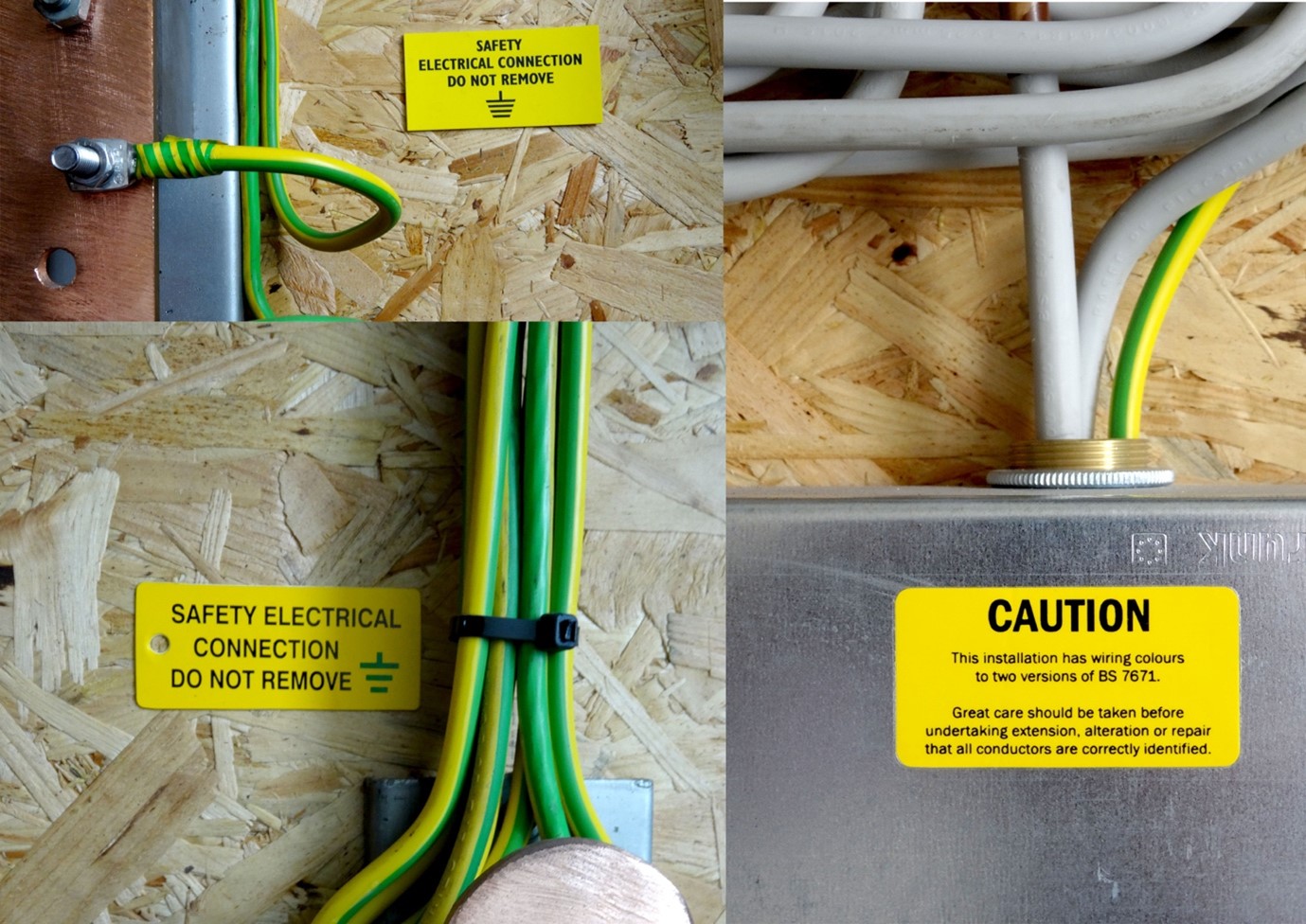
How do you keep wires safe, and how do you truly know if electrical equipment is secure? Ever since the advent of electricity, employers and workplaces have endeavoured to keep electrical equipment safe.
Thankfully, the (BS 7671) Wiring Regulations have been developed to apply a nationwide standard of electrical safety.
Below, we discuss what BS 7671 is, why wiring labels are needed and give a short history of why the regulations are important.
What Do The BS 7671 Wiring Regulations Protect?
The regulations specifically put action plans in place, primarily to protect against the risk of fire from electrical wiring. In addition to protecting against fire, the regulations:
- Protect against electric shock.
- Protect against thermal effects and damage.
- Protect against voltage.
For this reason, BS 7671 is mandatory and far-reaching. If electricity is being passed through a device, then BS 7671 regulations must be followed with appropriate labels.
The History of BS 7671
The origins of BS 7671 can be traced back to 1882. In that year, after electricity began to enter more households, a document entitled “Rules and Regulations for the Prevention of Fire Risks Arising from Electric Lighting” was published.
These rules were expanded on in 1897 with “General Rules recommended for Wiring for the Supply of Electrical Energy". As electricity and technology developed, these initial rules were iterated upon.
Since 1882, there have been 18 editions published. The most recent edition was released in 2018, with an amendment in 2020.
Each edition and amendment usually concerns a new technology. For example, the 2020 amendment dealt with car charging.
The Role of Inspection BS 7671 Labels
So, why are BS 7671 labels needed? Under the 17th edition of the BS 7671 Regulations published in 2008, all electrical equipment must have identifiable labels on them covering the item’s inspection details. These labels include:
- Installation inspection labels.
- Three-phase colour coding.
- Distribution board details.
- Cable schematics.
- Circuit breaker information.
Overall, the labels should provide as much information as possible in a clear, concise manner.
Make Sure You’re Regulation Ready
If your workplace uses complex electrical equipment, then you may need BS 7671 labels. Our range of wiring labels can help by allowing you to present all the necessary information to stay within the latest regulations.